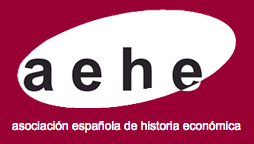Credit, coercion and workforce loyalty in a border agricultural exporter: Montes de María (Colombia), 1850-1914
DOI:
https://doi.org/10.1016/j.ihe.2016.10.001Keywords:
Rural credit, Indebtedness, Regional history, Agricultural exports, N56, N96, Q14, R14Abstract
The emergence of agricultural export regions in Latin America during the second half of the nineteenth century often involved the use of credit as a central mechanism in the organisation of production and marketing. This article presents an analysis of the operation of credit in the tobacco export economy that existed in the Colombian Caribbean during that period. The particularity of this case is that it was a region with plenty of free land available for the peasantry. The question is tackled on whether, even in an agrarian structure of this kind, credit to farmers implied the coercive labour relations. It is concluded that credit was the mechanism by which traders could push farmers to produce tobacco, but that this relationship went beyond the mere logic of exploitation, and also included elements of paternalism, “cronyism”, and friendship.Downloads
Downloads
How to Cite
Issue
Section
License
Aquellos autores/as que tengan publicaciones con esta revista, aceptan los términos siguientes
- Los autores/as conservarán sus derechos de autor y garantizarán a la revista el derecho de primera publicación de su obra, el cuál estará simultáneamente sujeto a la Licencia de reconocimiento de Creative Commons Reconocimiento-No comercial-Sin obra derivada 4.0 Internacional que permite a terceros compartir la obra siempre que se indique su autor y su primera publicación esta revista, y no permite hacer uso comercial de la misma ni tampoco obras derivadas.
- Los autores/as podrán adoptar otros acuerdos de licencia no exclusiva de distribución de la versión de la obra publicada (p. ej.: depositarla en un archivo telemático institucional o publicarla en un volumen monográfico) siempre que se indique la publicación inicial en esta revista.
Plagio y fraude científico
La publicación de un trabajo que atente contra los derechos de propiedad intelectual será responsabilidad de los autores/as, que serán los que asuman los conflictos que pudieran tener lugar por razones de derechos de autor. Los conflictos más importantes pueden darse por la comisión de plagios y fraudes científicos.
Se entiende por plagio:
- Presentar el trabajo ajeno como propio.
- Adoptar palabras o ideas de otros autores sin el debido reconocimiento.
- No emplear las comillas u otro formato distintivo en una cita literal.
- Dar información incorrecta sobre la verdadera fuente de una cita.
- El parafraseo de una fuente sin mencionar la fuente.
- El parafraseo abusivo, incluso si se menciona la fuente.
Las prácticas constitutivas de fraude científico son las siguientes:
- Fabricación, falsificación u omisión de datos y plagio.
- Publicación duplicada.
- Conflictos de autoría.





